Best winter cycling jackets 2026: keep warm this fall and winter with our top rated jackets
To make winter miles more enjoyable, get yourself kitted out in one of the best winter biking jackets
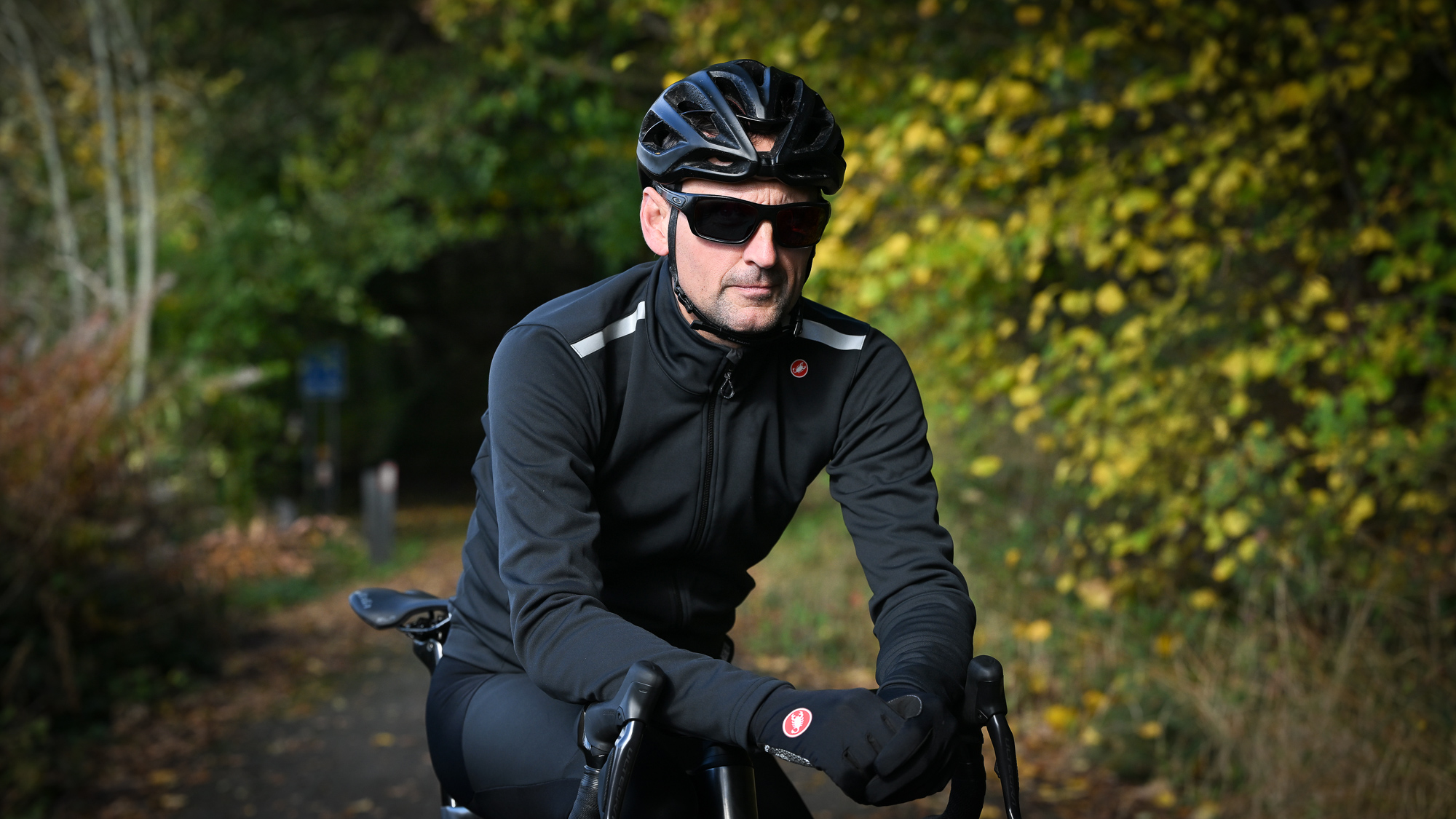
The latest race content, interviews, features, reviews and expert buying guides, direct to your inbox!
You are now subscribed
Your newsletter sign-up was successful
Riding in cold weather is made far more enjoyable if you’re properly equipped. This starts with your clothing choices and the best winter jackets help protect you from the worst of the elements, allowing you to ride in relative comfort.
So what makes the best winter jackets function? Typically they blend windproof properties with DWR (Durable Water Repellent) treatments for spray and light shower protection, while still allowing you to breathe.
Some are designed to handle the very coldest days when the mercury is consistently below freezing, while others are best suited to cool rather than downright cold, but in general the best winter cycling jackets should be versatile enough to see you through temperatures ranging from 0°C /32 °F to 12°C / 54 °F.
Pair them with one of best cycling base layers and one of the best packable jackets for when the heavens opens, and you should be set for whatever the weather throws at you. That said, if you plan on riding all day in the rain then the best waterproof cycling jackets are likely a better option.
Our experienced reviewers have tested numerous winter jackets and they’ve selected their favorites here with a view to help you find the right choice for your cold weather riding..
The Quick List
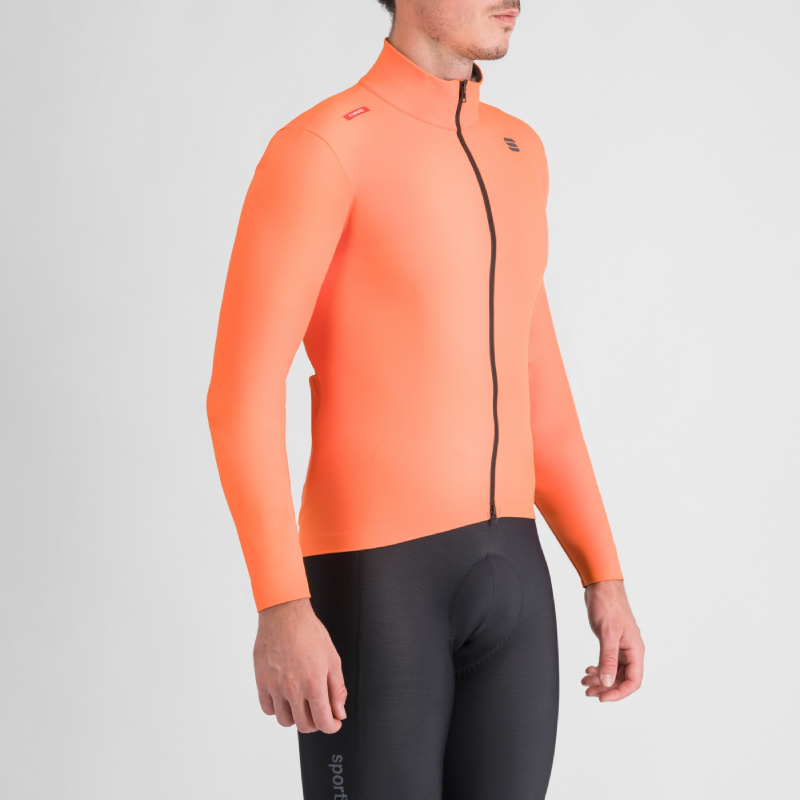
Superb breathability is paired with practical elements and a high operating temperature range. It’s not cheap, but for what it does it’s good value.
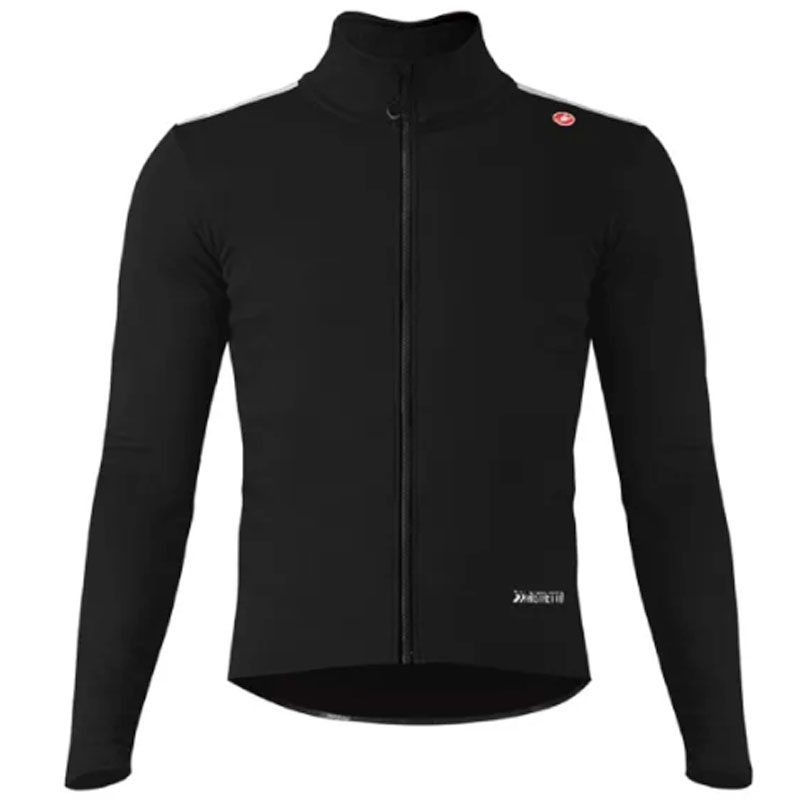
An innovative approach to weatherproofing and breathability makes the Espresso Air a great option for most winter riding, whilst the non-membrane stretchy fabric allows for a great fit.
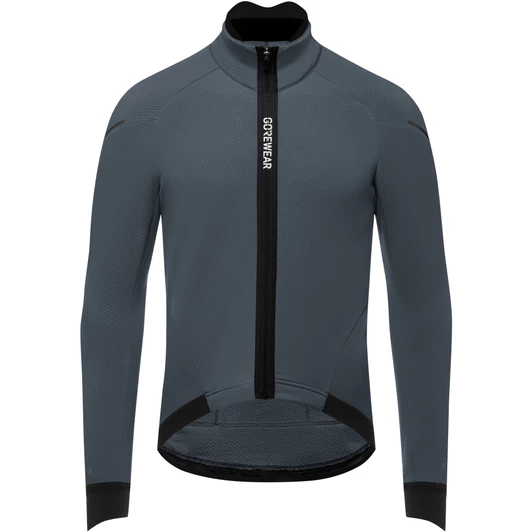
The Gorewear Spinshift jacket proves that membranes are not always necessary or desirable, which is surprising for a brand known for its pioneering waterproof and windproof membranes.
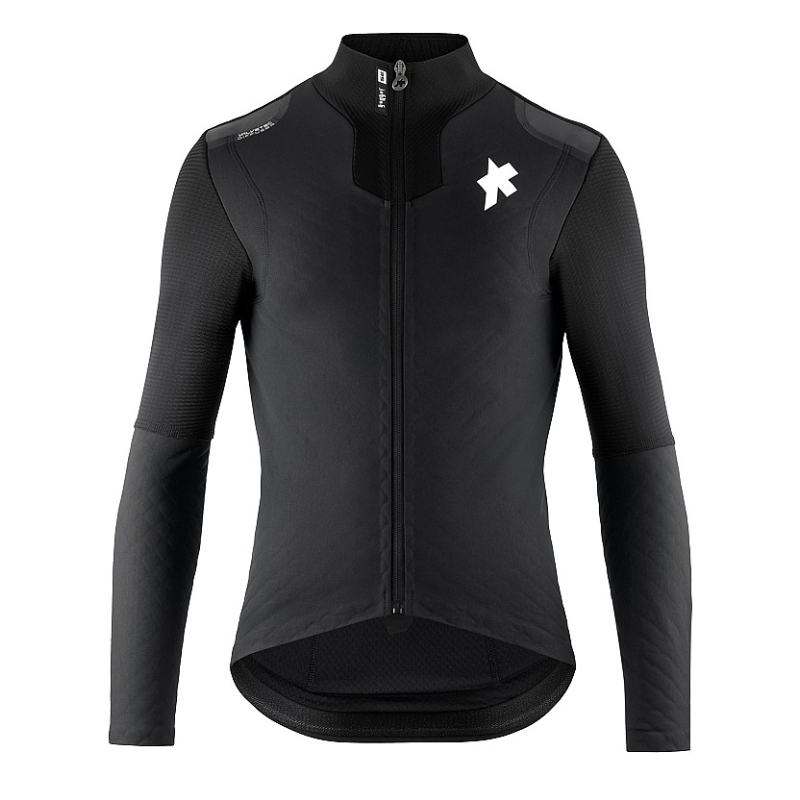
One of the best winter jacket we've ever used, with exceptional breathability as well as a host of functional features. Even with its prohibitive price, the performance is impressive.
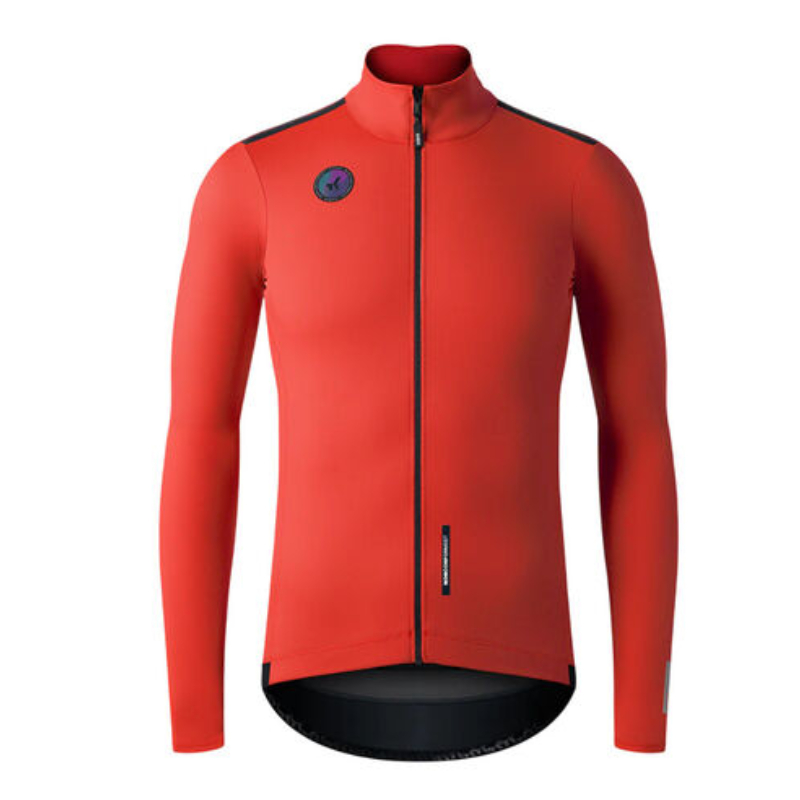
Gobik’s cool-weather jacket offers wind and water-proof fabrics, excellent breathability, and a very trim cut. On-bike fit is great, and the soft fabrics look and feel nice too.
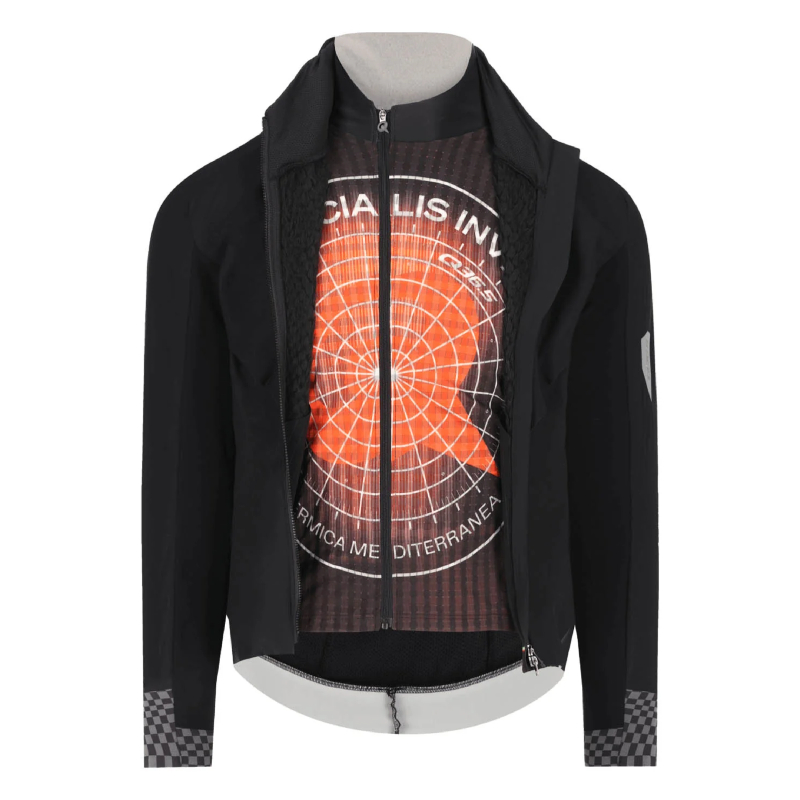
It’s not cheap but the performance is exceptional offering great insulation balanced with breathability and comfort across a range of temperatures.
Best Winter Cycling Jackets
Best overall
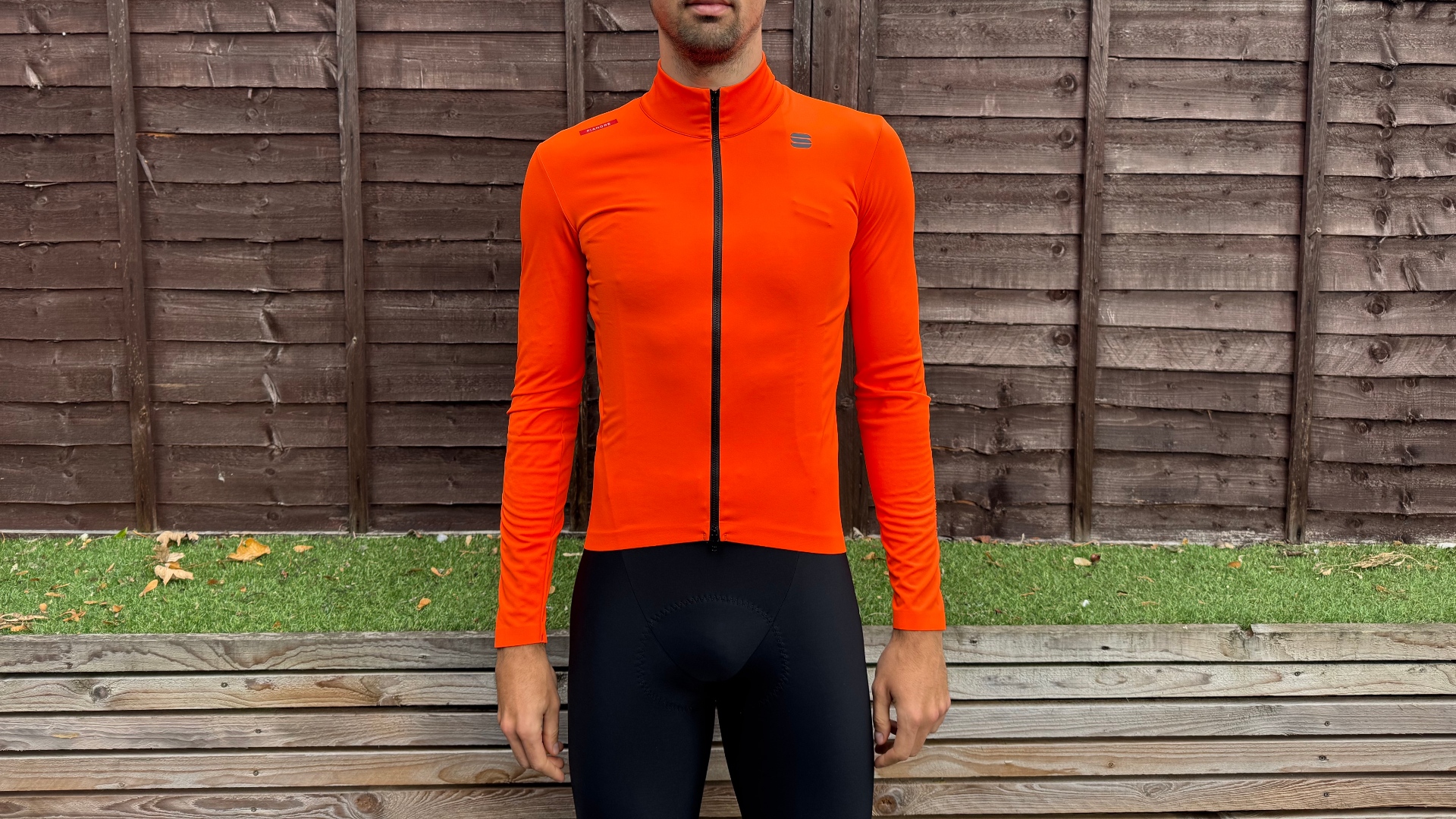
Specifications
Reasons to buy
Reasons to avoid
The Fiandre Shift gets our nod as the best overall winter jacket thanks to its blend of warmth and breathability as well as a number of practical features.
The main fabric of note is Polartec’s AirCore. The PFAS material is designed to improve breathability, reducing the amount of sweat that builds up inside the jacket. And it works. We tested it at a range of temperatures and it performed admirably, even on a surprisingly warm October day. The two-way zip also helps here, allowing you to regulate your body temperature by either unzipping at the top or the bottom of the jacket.
It’s effective in windy conditions too, while the DWR coating does a decent job of keeping you dry in light showers. This isn’t a jacket for wet weather though, and you’d need to combine it with a true rain cape if you were riding in prolonged bouts of rain. Rather, the Fiandre Shift is an excellent choice for cool to cold dry days, where you might put in some hard efforts.
It’s practical too. The bright orange colour we tested is highly visible, while the three rear pockets are voluminous and able to store most of your ride essential. We would have liked to see a zipped valuable pocket, though.
All told, the Sportful Fiandre Shift is an impressive piece of kit that can be used across a huge range of conditions. What’s more, all this performance and technology come at a price that undercuts many of its rivals.
- Read our full Sportful Fiandre Shift jacket review
Best value
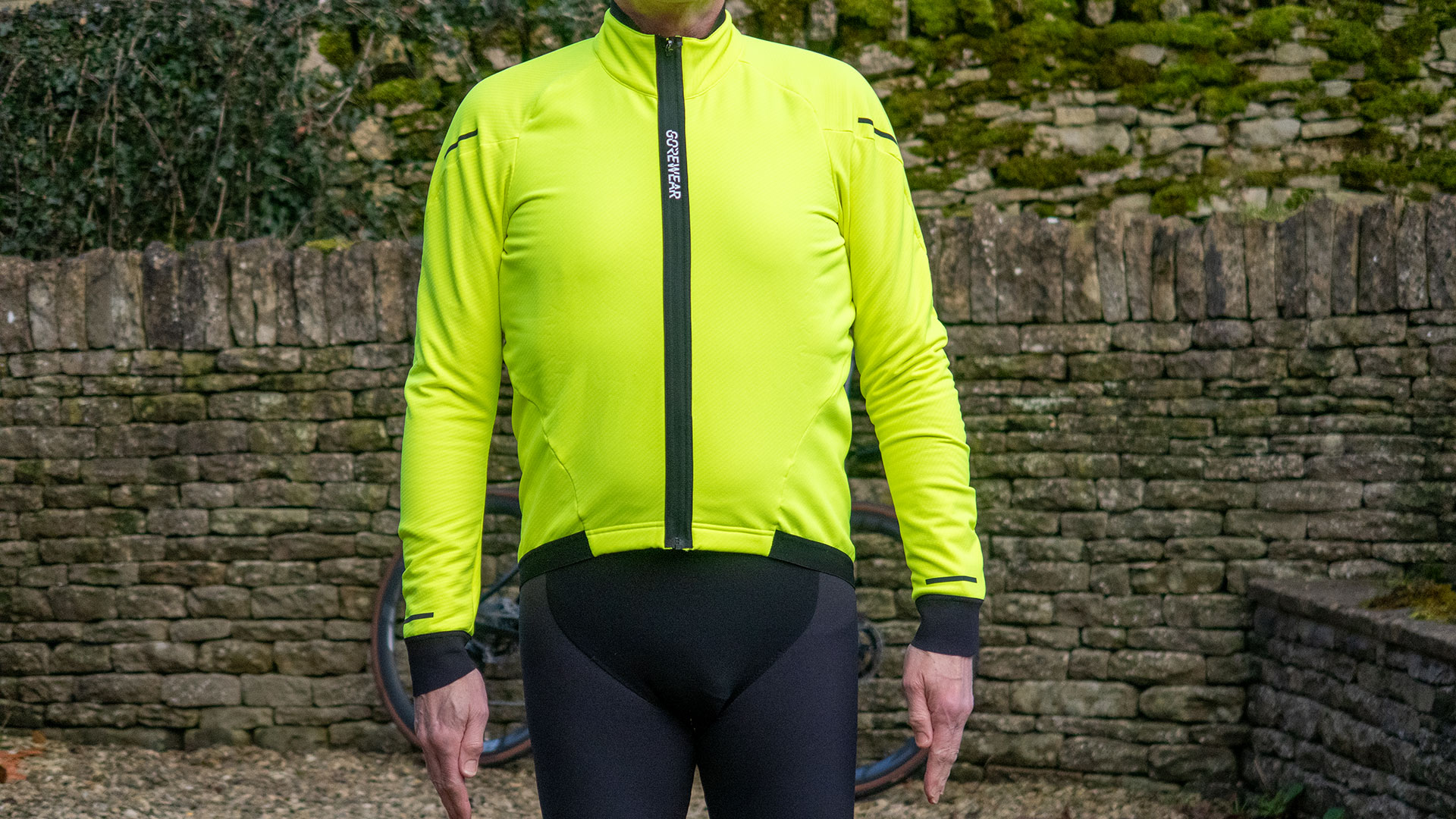
Specifications
Reasons to buy
Reasons to avoid
For a brand known for its complex and incredible waterproof Gore-Tex fabrics, it is a little surprising to be testing a jacket from Gorewear which features none of this pioneering technology. Instead, the Gorewear Spinshift Thermo Jacket relies on more traditional, and I might add environmentally friendly, techniques. The Spinshift utilises a tightly woven fabric which is backed with a fleece fabric to protect you from the elements.
What this means is you have largely a single fabric throughout the jacket, okay, a relatively thick one, but this not only keeps you warm down to around 2°C/35.6°F in my testing, but it also makes the jacket incredibly breathable. Further, it's worth noting that Gore only used a durable waterproof repellent (DWR) finish rather than a full waterproofing layer. This prevents the fabric from wetting out rather than completely stopping the rain from entering.
Fit, as is usually the case with Gore clothing in my experience, is generous. Gore claims to have recently slimmed down their garments, but the Spinshift still has a roomy, performance-oriented fit despite this. Throughout testing, I spent most of the time in a merino base layer underneath the Spinshift, which I was comfortable in down to 2/3°C, or roughly 36°F.
The most pleasurable part of the Spinshift is when you start to press on or hit the climbs. The tightly woven fabric's incredible breathability not only does a fantastic job of keeping the wind chill off, but I never had to lower the zip as the intensity increased. If the jacket had a membrane, I would almost certainly need to, just to let the air flow at lower speeds or as I built up body heat.
The Spinshift has made me rethink my winter wardrobe and how I layer through the fall and winter months.
- Read our full Gorewear Spinshift Thermo Jacket review
Best fitting
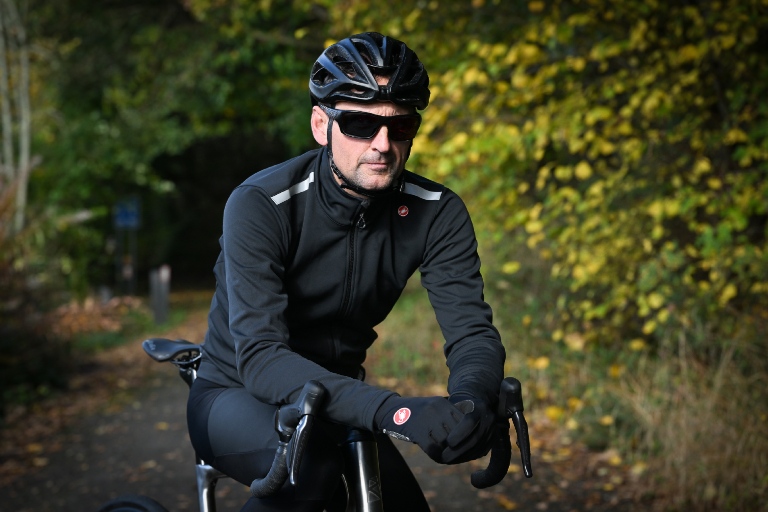
Castelli Espresso Air jacket
Specifications
Reasons to buy
Reasons to avoid
The Espresso Air offers an impressive combination of warmth, breathability and great fit. The fabric is constructed to allow a small amount of air to pass through it rather than being 100% windproof, although in use you don't notice that it isn't blocking all the breeze. This air permeability improves breathability and moisture management so that you don't get wet from your sweat and provides better temperature regulation.
As there is no membrane layer to the Ristretto Warm fabric it is super stretchy and light-feeling to wear despite its warmth. This also means that the fit can be close without being restrictive, even if worn over a layer or two.
There is a DWR coating to ward off light showers, but a waterproof will be required in more sustained rain and Castelli's temperature rating of 0°C - 10°C feels pretty spot on if worn with a good long-sleeved base layer.
- Read our full Castelli Espresso Air Jacket review here
Most breathable
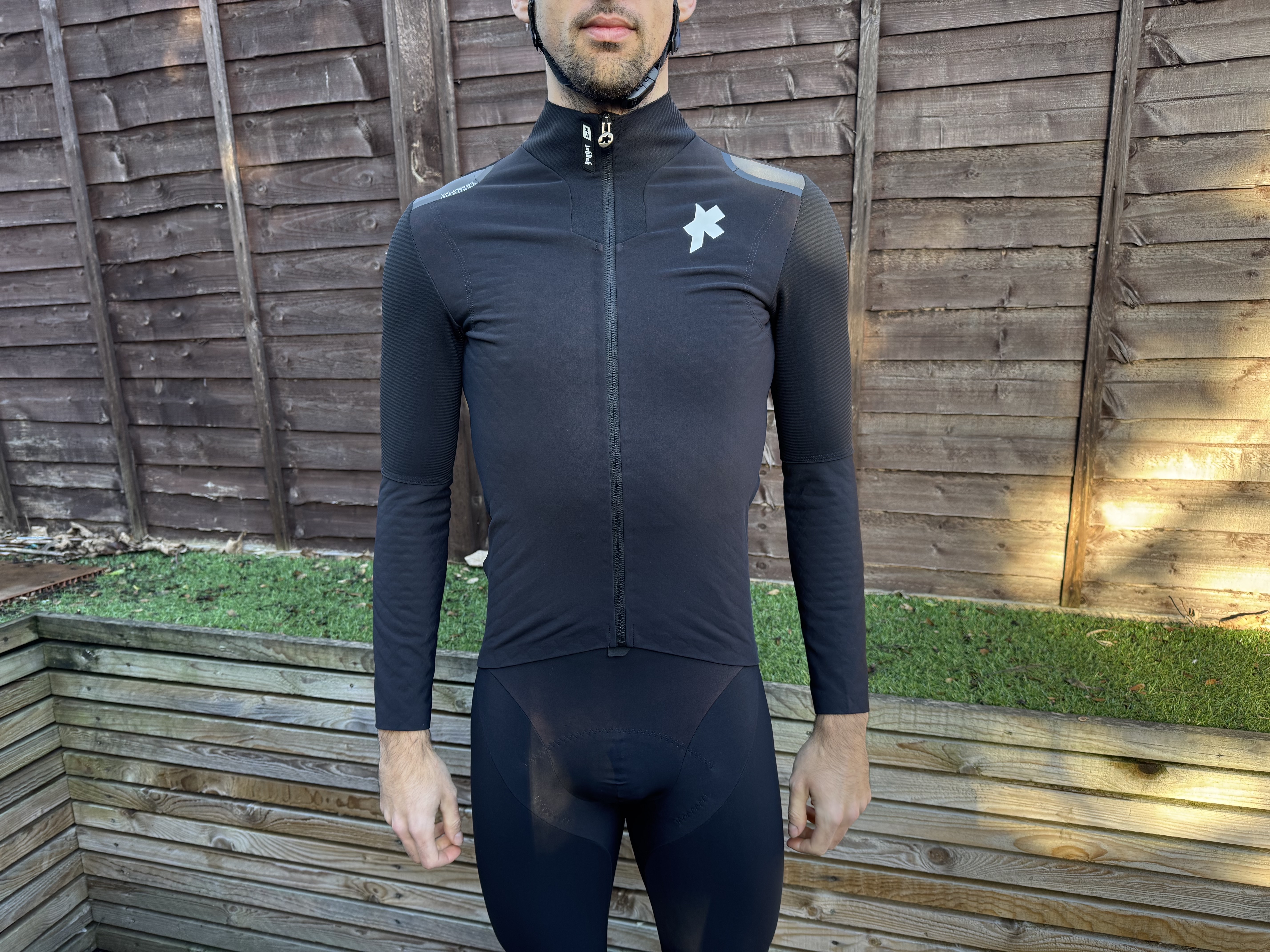
Specifications
Reasons to buy
Reasons to avoid
If you’re riding hard during the winter, then a jacket’s ability to breathe is just as important as its adeptness at keeping you warm. And the Assos Equipe RS Johdah Ultraz S11 does it with aplomb, receiving our vote as the most breathable winter jacket in the process.
Like most Assos jackets there’s plenty of fabric technology in play here. The brand’s Diamond Medium material, a softshell fabric, is used across the front panels and sleeves to add insulation, while Osmos Heavy is featured at the rear for better protection and breathability in less exposed areas. The upper arms feature a textured fabric with an exterior zigzag pattern, which is said to protect against storms.
The double layer gilet, which has featured on Assos winter jackets in the past, now uses Lithium Medium, which is designed to both insulate and breath. Additional breathability is offered via an off-center zip on the gilet and valveTec diffusors, which are there to increase airflow down from the shoulders and the chest when riding in a low, aggressive racing position.
Out on the road, all this tech adds up to a supremely functional jacket. The fit is close without being restrictive while the jacket and gilet combo makes it as breathable as you need a winter jacket to be; the rear of the jacket benefits from highly breathable materials, while the front is far more insulated. It meant we stayed warm, while being able to expel plenty of moisture to stop that dreaded cool down of sweat that can leave you freezing cold as a result. We’d happily recommended this jacket for a steady all-day ride as well as high tempo efforts in 0-10˚C temperatures.
The rear pockets are worthy of a mention, too. They are cavernous, both wide and deep and allowed us to carry plenty of food alongside tools and spares - indeed we chose to leave our bar bag at home.
The obvious downside is the price. Quite simply, this is the most expensive winter jacket around. It also lacks color options and it could do with more reflective details given its winter remit. However, if you can afford it, and don’t mind riding in black, then the Assos Equipe RS Johdah Ultraz S11 will be one of the very best winter jackets you’ve ever owned.
- Read our full Assos Equipe RS Johdah Ultraz S11 review
Best race fit
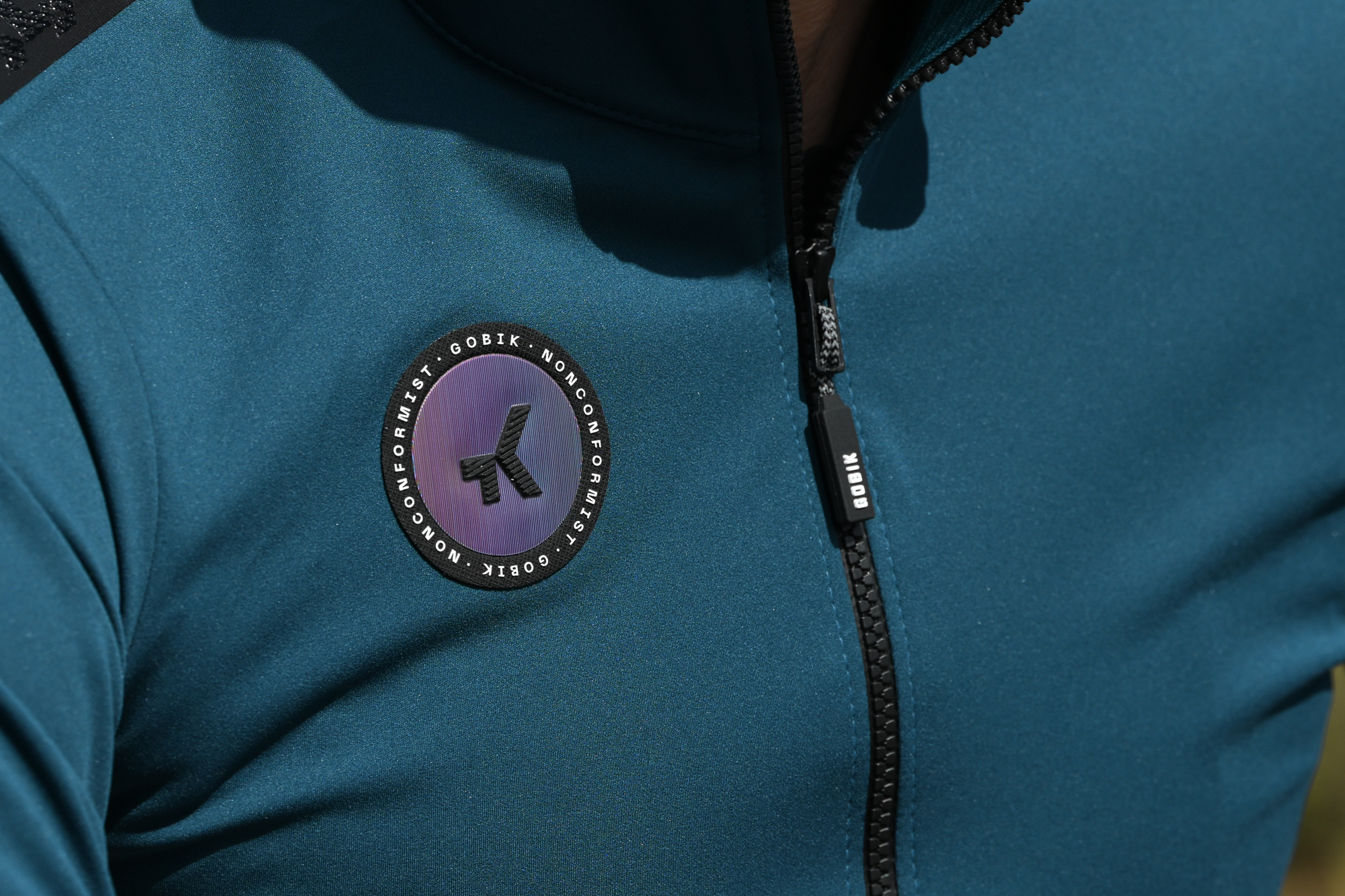
Specifications
Reasons to buy
Reasons to avoid
The Envy 2.0 is rated by Gobik for use in temperatures of between 5° and 15°. We tested it out during several rides in cool conditions with bursts of light rain and our dedicated rain cape stayed in our pocket; this is thanks in part to the YKK Vision Aquaguard zipper unit, which protected us against wind and rain.
Likewise the rear pockets feature a neoprene panel that ward off rear wheel road spray. While it’s not designed for, or best suited, to really cold or really wet days, it was encouraging to see just how well it coped at the lower end of the temperature spectrum and with a few showers thrown in.
Where the Envy really excels is in both its fit and its ability to breath. It’s a snug fit for sure, but on the bike it’s ideal, making many of the other winter options feel overly baggy. The fit is aided by the softness of the fabric, which makes it truly comfortable. Add in the deep and well sculpted collar and you have a winter jacket that’s among the best fitting we’ve tested.
While keeping us warm, the Envy didn’t sacrifice any breathability in the process. We wore the jacket during tough chaingangs and long rides with plenty of climbing and we remained drier internally than we had any right to expect.
- Read our full Gobik Envy 2.0 jacket review
Most versatile
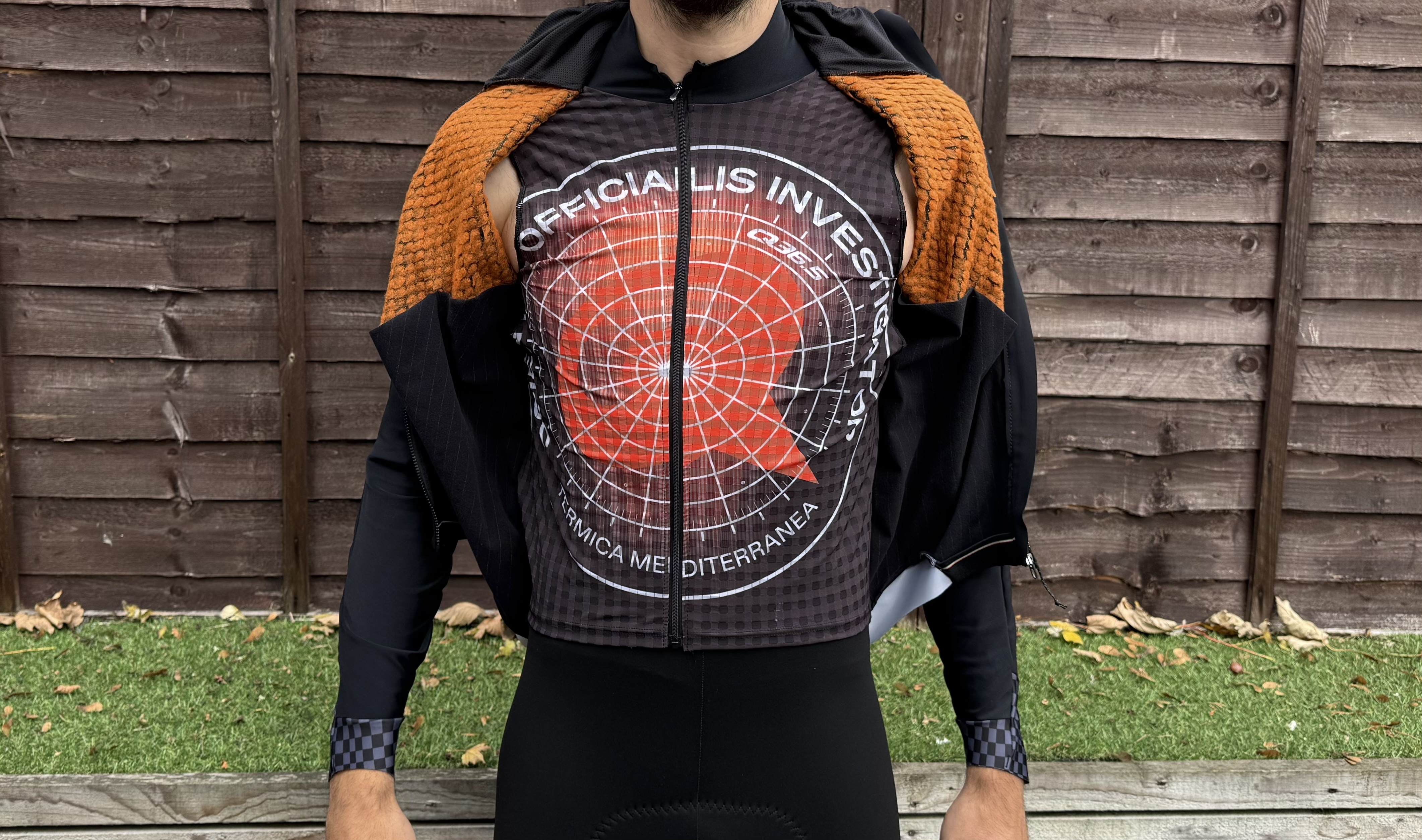
Specifications
Reasons to buy
Reasons to avoid
The Dottore Termico Light Mediterranea Jacket isn’t the brand’s heaviest duty winter jacket, which makes it versatile across a pretty wide range of cool to cold temperatures. Q36.5 says it's usable from 2-12˚C and we’d say from our testing that’s pretty spot on.
It achieves a great blend of warmth and breathability thanks to clever design features and plenty of proprietary fabrics. Externally you have panels on the chest, arms, shoulders and back that are designed to be resistant to water and wind. Internally the panels are faced with insulating fabric, with its small fibred fleece trapping air to add insulation. Other areas of the jacket use a more traditional brushed fleece.
Like the Assos jacket reviewed in this guide, you get an additional layer in the shape of a vest or gilet. This one is made from Q36.5’s ultralight graphene material and it’s there to provide some additional insulation, while also allowing you to cool quickly during hard efforts, such as a long climb. On top of this the jacket has plenty of venting, integrated at both the front and the rear of the garment, although we didn’t really feel the benefit of these. However, the materials combined with the vest and the two-way zip collectively meant that we were comfortable across a range of temperatures, with the front of the jacket doing a great job of keeping us protected against the cold, wind and rain.
Other highlights include all the zippers, which features a string to help you operate them while wearing gloves, the soft cuffs and neck hem, a large reflective panel at the rear hem and the large pockets, which are well positioned and also benefit from a zip-up pocket for your valuables.
- Read our full Dottore Termico Light Mediterranea Jacket review
How we test
All of the best winter cycling jackets in this buyers guide have been put through their paces, having been ridden by our tech team in the harshest of conditions
We all have a wealth of experience of cycling year round, so know what makes an ideal winter warmer, and what doesn't.
These winter cycling jackets are all standout quality because not only will they keep you warm in the coldest season, but also feature either technical innovation, super practical detailing or are just a great jacket for the price.
We're testing kit all year round, so as soon as the mercury drops, we'll be pulling our thermals on and reviewing more of the latest winter cycling kit, and will ensure this page is kept up to date with only the best on test.
More information on our rating system.
Meet the testers

Andy is a Sport & Exercise Scientist, fully qualified and experienced Cycling Coach, Sports Director, Freelance Writer, and Performance Consultant. He's not adverser to riding in cold and wet weather, making him ideally placed to assess the merits of any winter jacket.
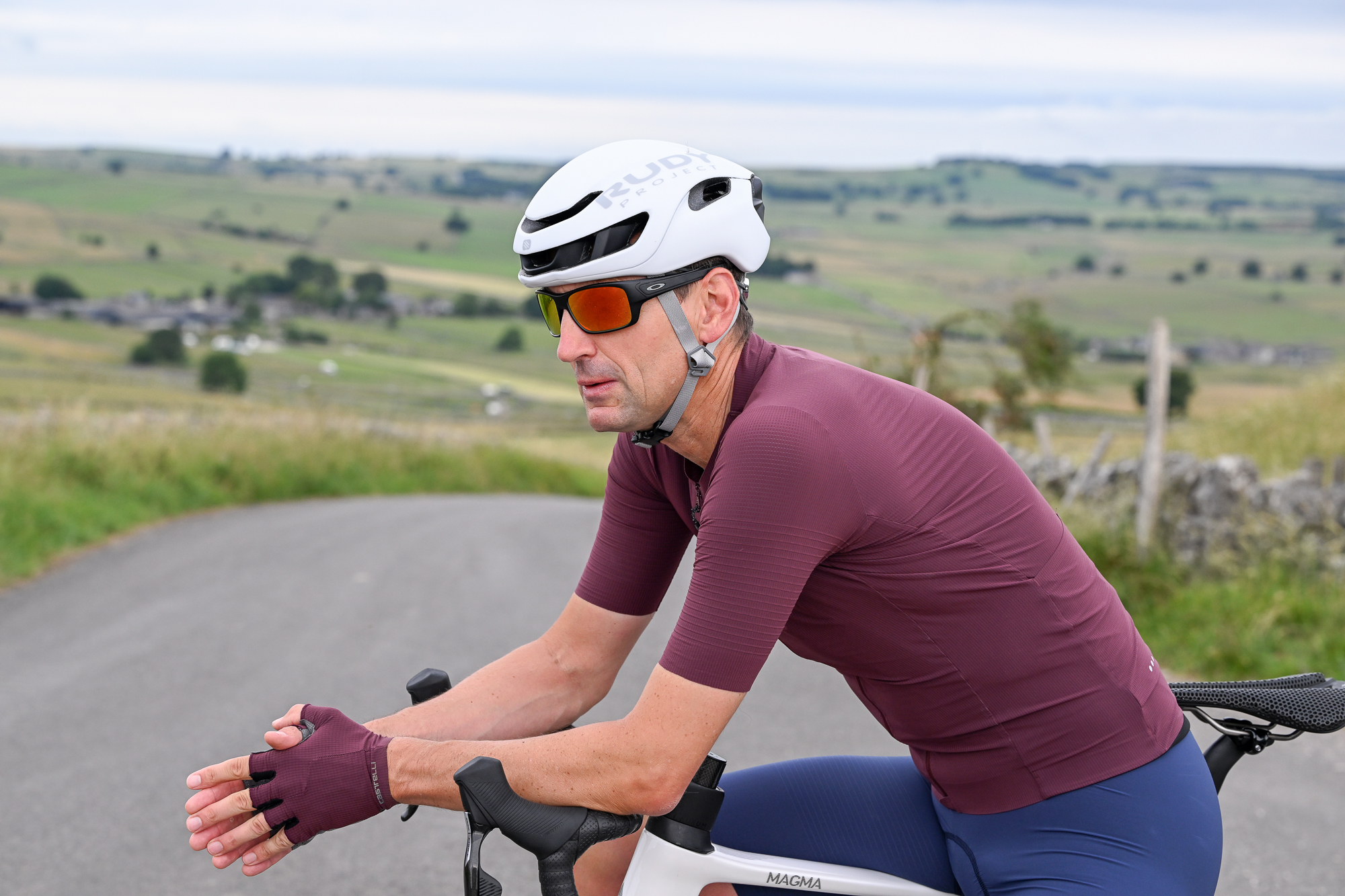
Tim is a writer and photographer who has worked in the outdoor and cycling industry for over 20 years. Living in the Peak District in the UK, he's well-versed to riding in challenging weather conditions, and knows a good winter jacket from a poor one as a result.
How to choose the best winter cycling jacket
While your legs are constantly moving on a road bike, gravel bike, and pretty much any other type of bike, your torso and arms spend a lot of the time pretty static. Keeping them warm by wearing a great fitting winter cycling jackets is paramount, not only for your riding enjoyment, but, as the key controllers of your bike, in keeping you safe too.
Differing from the best long sleeved cycling jerseys, that plug the weather gaps of spring and fall/ autumn, the perfect winter cycling jacket will allow you to keep riding in much colder and wetter conditions, thanks to its thermal insulation, wind and waterproof properties, as well as being capable of maintaining good breathability.
What should I look for in a winter cycling jacket?
Often ‘thermal’ and made from a Roubaix-style soft, fleece-backed fabric, the best winter cycling jackets will usually come with a Windstopper front, which is often paired with a more breathable fabric at the back to allow for heat dissipation.
The difference between winter racing and a gentle commute in the coldest months of the year is vast. Meeting your specific needs is a careful balancing act of keeping the weather out and the warmth in. The best winter cycling jacket for you will need to match these exacting requirements.
Waterproofing, or at least a DWR (durable water repellency) treatment is something you'll also find in many winter cycling jackets, along with storm flaps on the zips, either internal or external. Pockets will often be waterproofed with zips or flaps, as well as deeper - allowing room to stow one of the best waterproof cycling jackets or best cycling gilets.
Shorter days and longer nights in winter will mean that at some point you're probably going to be riding in the dark, or at least lower light levels, so winter cycling jackets often come with more reflective details than most of the best cycling jerseys.
What's the difference between 'waterproof' and 'water resistant'?
If you plan on riding through truly biblical conditions, you’ll need a jacket that can stand up to the deluge.
The way a fabric's waterproofness is tested is by measuring the Hydrostatic Head. That is, how tall a column of water can be stood on the material before it starts to penetrate through the fabric. For a proper waterproof jacket, you should be looking for at least 10,000mm and going up to 20,000mm for greater protection from the rain. That said, the more waterproof a fabric is, the less breathable it tends to be.
A water-resistant fabric might just have a DWR (durable water repellency) treatment on the outside, which means that the rain beads up and runs off without soaking in. As these fabrics don't have a membrane, they are usually more breathable, lighter and more packable than a waterproof garment.
If you know you will be riding for a long time in the rain, or you won't be putting big efforts in, then a waterproof will be better, but if you are only out for a short ride or likely to be working up a sweat then you might find a water-resistant jacket more suitable.
How is breathability measured?
There are few feelings less pleasant than the clammy clasp of a jacket with poor breathability. It’s no good being protected from the elements if you just end up getting drenched from the inside.
The key is getting the perfect winter cycling jacket to match your style of riding.
Breathability is measured by the number of grams of water vapour that can pass through a square meter of the material in a 24-hour period. A value of 10,000–20,000g/m²/24hrs tends to be fine for a steady ride, but if you are putting in some spicy efforts you’ll want to be looking in the range of 20,000–40,000g/m²/24hrs.
Get the breathability balance right and it will pay dividends in the comfort of your ride - the harder you intend to ride, the more important breathability becomes.
What is a softshell?
A water-resistant “softshell” jacket sacrifices some waterproofness for warmth and increased ride comfort. As the name suggests, they are made of softer, more comfortable fabric than a "hardshell" rain jacket. They're stretchy too.
These are breathable enough to ride in the dry without feeling clammy and can fend off a shower — although not a downpour. This makes them a great winter cycling jacket for changeable days when you’re not sure what the weather will do — and certainly makes the pre-ride choice of which jacket to put on significantly easier.
Some of the waterproofing properties will be down to spray treatment, often referred to as DWR (durable water resistant coating). While this will wash/ wear out after time, the good news is that you can reapply it yourself. Our guide on how to re-waterproof your cycling jacket will tell you all about it.
Generally, a softshell style jacket won't pack down into a pocket - they are designed to be worn all ride long and perhaps supplemented with a waterproof layer in teh event of a downpour.
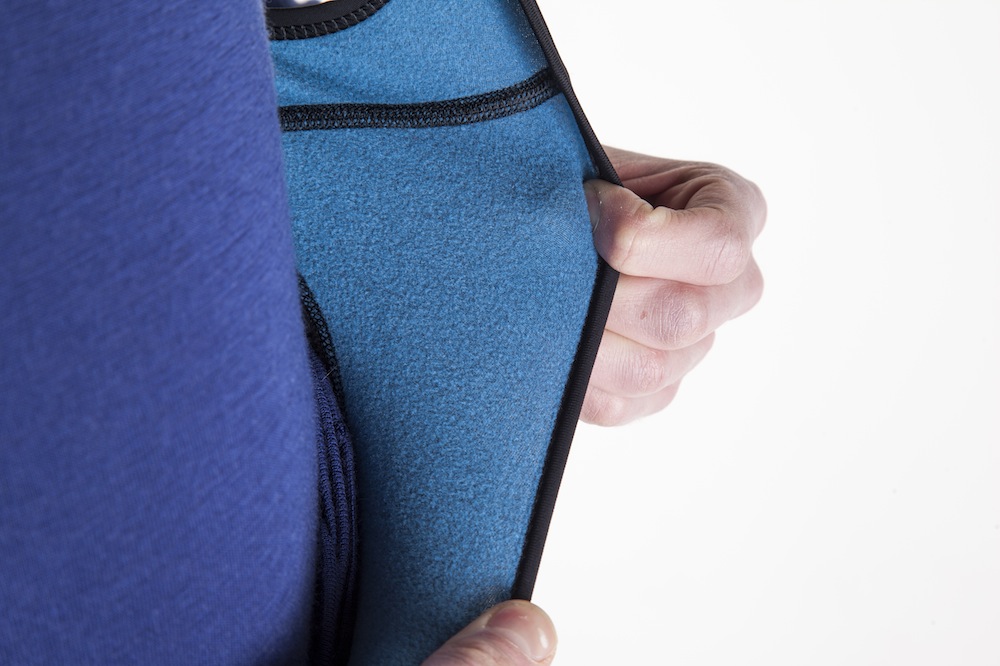
What makes a winter jacket warm?
Although it might be cold out, sometimes it’s worth not opting for the warmest jacket available. As a highly technical piece of clothing, a winter jacket does represent a considerable investment, so you’ll want to maximise the amount of use you will get out of it.
Remember, you can always combine a thinner jacket with more layers, but you can’t make a thick jacket any less warm. In fact, layering is the key to getting the right degree of warmth for the conditions. Don’t make the mistake of paying through the nose for the absolutely best winter cycling jacket you’ll only use on the five coldest days of the year.
However, if you know you do run irremediably cold, then by all means get the warmest jacket you can to keep you riding through the winter!
What fit should I get?
Even with the best winter cycling jackets, you'll need to decide what kind of fit you want. Some winter jackets are cut to leave space for extra layers to be added underneath. Others share the same tight fit as the lighter-weight options in the range.
The same principle applies to whether a collar is intended to be skin-tight, preventing any draughts from shooting down your neck, or if the jacket is supposed to be used in combination with a buff and therefore cut to leave a little extra room.
Either way, spend some time reading our reviews and checking sizes before buying so you know whether you're meant to layer up, or if there's only room for the best cycling base layer underneath.
The best commuter cycling jackets are a good option to consider if you're planning to ride to work and need to fit extra work clothes underneath.
Any other features to consider?
Generally, when the conditions are such that you need a winter jacket, visibility is not going to be great either. Opting for a jacket that uses brighter colours and reflective detailing can go a long way to helping you be seen on the roads.
Most of the best winter cycling jackets will have elements of high-viz or reflectivity built in.
Frequently asked questions about winter cycling jackets
What temperature do winter biking jackets work best?
Depending on the brand, the range within which they claim a jacket performs is quite broad and can be anything from minus 5°C to 15°C or 23°F to 59°F, which we find to be generous. Most of the jackets featured in our best winter cycling jacket guide start to feel a bit stuffy as the temperatures reach double digits in Celsius and around 50°F. The same is largely true for the lower-end numbers, especially those approaching 0/32 or below. The working window, either way, is highly dependent on what you choose to layer with your winter jacket.
What should I wear for winter biking?
What to wear in the winter is largely about trial and error, and it largely depends on how comfortable you feel wearing multiple layers or at a given temperature. We have a comprehensive guide that outlines what you can expect at each temperature range throughout the year. What to wear cycling: A temperature-by-temperature cycling dress guide
How cold is to cold for biking?
Everyone is different. Consider those who undertake the Iconic Iditarod Trail Invitational, enduring up to 30 days and nights through the Alaskan wilderness on fat bikes, where temperatures can plummet to -50°C/-58°F. That is an extreme, but it depends on the individual and how well-prepared you are for winter riding. It also depends on your preferred discipline of cycling. For road cycling, because of the ice risk on the roads, even with the best winter tyres, many will stop when temperatures hit freezing. However, for those who choose to ride the best gravel bikes and head off-road like those that take on the Iditarod Trail, there is a much wider window in which you can continue to ride.
The latest race content, interviews, features, reviews and expert buying guides, direct to your inbox!
Luke Friend has worked as a writer, editor and copywriter for over twenty five years. Across books, magazines and websites, he's covered a broad range of topics for a range of clients including Major League Baseball, Golf Digest, the National Trust and the NHS. He has an MA in Professional Writing from Falmouth University and is a qualified bicycle mechanic. He has been a cycling enthusiast from an early age, partly due to watching the Tour de France on TV. He's a keen follower of bike racing to this day as well as a regular road and gravel rider.